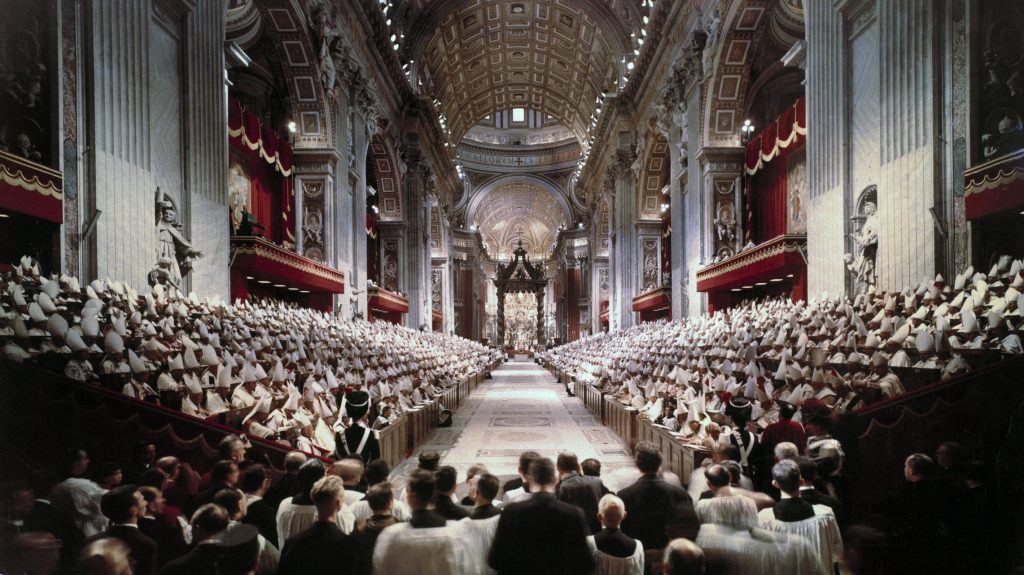What was the Second Vatican Council all about? With the 60th anniversary of the council’s opening now close at hand, you can still get an argument about that. Instead of consulting the “spirit” of Vatican II for an answer, my suggestion is that we take a look at the letter instead. And here surely the most reliable source is the man who convoked Vatican II, St. Pope John XXIII.
In his opening address to the bishops gathered in St. Peter’s, delivered Oct. 11, 1962, Pope John stated the objective like this: “The Church must once more reaffirm that teaching authority of hers.” And lest there be any doubt: “That was our reason for calling this most authoritative assembly.”
Sixty years later, who can doubt that this admirable goal remains that — an admirable goal? And not the least reason is the continuing resistance of partisans of “the spirit of Vatican II” who prefer that the teaching of the Catholic Church be forever in flux.
People who think that way sometimes quote St. Cardinal John Henry Newman’s famous saying, in the “Essay on the Development of Christian Doctrine,” that “to live is to change, and to be perfect is to have changed often.” They ignore his dictum in the same work that a doctrinal development “to be faithful, must retain both the doctrine and the principle with which it started.”
There is, however, plenty of unfinished business from Vatican II — things the council said needed to be done but we haven’t gotten around to doing yet. A case in point is what the council said — in “Lumen Gentium” (“Light of the Nations”), the dogmatic constitution on the Church — about creating a means for qualified laypeople to express opinions:
“By reason of the knowledge, competence or pre-eminence which they have, the laity are empowered — indeed sometimes obliged — to manifest their opinion on those things which pertain to the good of the Church. If the occasion should arise, this should be done through the institutions established by the Church for that purpose” (LG 37).
“Knowledge, competence, or pre-eminence” may set the bar higher than some would like, but it’s reasonable to insist that people expressing opinions know what they’re talking about. The real problem is with those “institutions established by the Church” and it comes down to this: What “institutions”? Perhaps we’ll find out in a synodal Church, but 60-plus years is a long time to wait.
On a deeper level, there is the council’s neglected teaching that the universal call to holiness extends to the laity. In case you’ve forgotten:
“The Lord Jesus, divine teacher and model of all perfection, preached holiness of life (of which he is the author and maker) to each and every one of his disciples without exception. … It is therefore quite clear that all Christians in any state or walk of life are called to the fullness of Christian life and to the perfection of love, and by this holiness a more human manner of life is fostered also in earthly society” (LG 40).
It’s often said people leave the Church because it asks too much of them. (This usually prefaces a call to relax some doctrine or other.) But I suspect many leave because the Church asks too little.
What to do? Remind the wavering and the weak, gently but firmly, that the call to holiness includes them. And, as time passes, make it clear the synodal Church isn’t just an ecclesiastical talk shop but a Church of sinners, all of whom are called to be saints.

